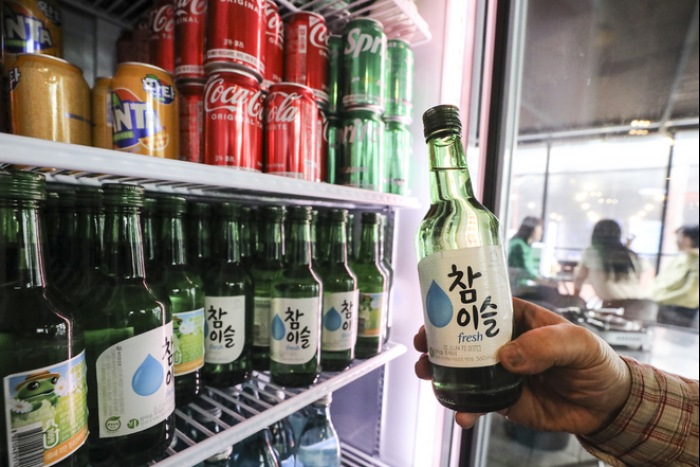Food & Beverage
Soju: Well-known Korean alcoholic beverage
According to a survey by the Korean Food Promotion Inst., Soju boasts the highest recognition in Southeast Asia
By Aug 01, 2023 (Gmt+09:00)
1
Min read
Most Read
LG Chem to sell water filter business to Glenwood PE for $692 million


Kyobo Life poised to buy Japan’s SBI Group-owned savings bank


KT&G eyes overseas M&A after rejecting activist fund's offer


StockX in merger talks with Naver’s online reseller Kream


Mirae Asset to be named Korea Post’s core real estate fund operator



The Korean alcoholic beverage that foreigners are most familiar with is Soju, according to the Korean Food Promotion Institution.
The institution revealed on Tuesday that this was the result of a "Survey on Overseas Korean Food Consumers," conducted from September to October last year with 8,500 respondents from 15 different countries.
In the survey, 41.2% of all respondents (allowing for multiple answers) mentioned Soju as a Korean alcoholic beverage they knew about. In this survey, "Korean alcoholic beverages" refer to alcoholic drinks produced by Korean companies, not necessarily traditional drinks. Following Soju, beer (32.2%), fruit wine (24.6%), rice wine (18.0%) and makgeolli (16.3%) were also well-known among respondents. On the other hand, 34.7% of respondents answered that they didn't know any Korean alcoholic beverages.
Looking at the continents, 68.1% of respondents from Southeast Asia knew about Soju, which was relatively higher compared to other regions. In Europe, only 17.2% of respondents were familiar with Soju.
Regarding future intentions, 53.4% of the survey respondents expressed their willingness to try Korean alcoholic beverages. Soju also remained the most encountered Korean alcoholic beverage among foreigners.
Among the 4,786 respondents who knew about Korean alcoholic beverages, Soju (46.5%) ranked first again when they were asked about the ones they had experienced. Beer (37.8%), fruit wine (25.5%), rice wine (17.6%) and makgeolli (14.4%) followed in that order. In terms of export, Soju recorded approximately $93 million in sales last year, showing a 13.2% increase compared to the previous year.
As for the reasons for drinking Korean alcoholic beverages, 41.5% (allowing for multiple answers) cited "taste" as the main factor, followed by "aroma" (15.3%). Other reasons included having encountered them in Korean dramas or movies (14.8%) and the lower alcohol content (12.1%), among other responses.
Write to Kyeong-je Han at hankyung@hankyung.com
More to Read
-

-
 Food & BeverageKorean food unappealing on lack of promotions: study
Food & BeverageKorean food unappealing on lack of promotions: studyDec 29, 2022 (Gmt+09:00)
2 Min read -
 Korean foodCJ CheilJedang to rev up Korean food sales in Europe
Korean foodCJ CheilJedang to rev up Korean food sales in EuropeJul 06, 2022 (Gmt+09:00)
1 Min read -
 Food & BeverageShinsegae to resume soju business targeting Southeast Asia
Food & BeverageShinsegae to resume soju business targeting Southeast AsiaMay 04, 2022 (Gmt+09:00)
2 Min read -

Comment 0
LOG IN


